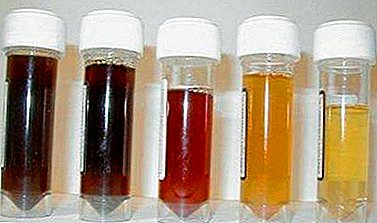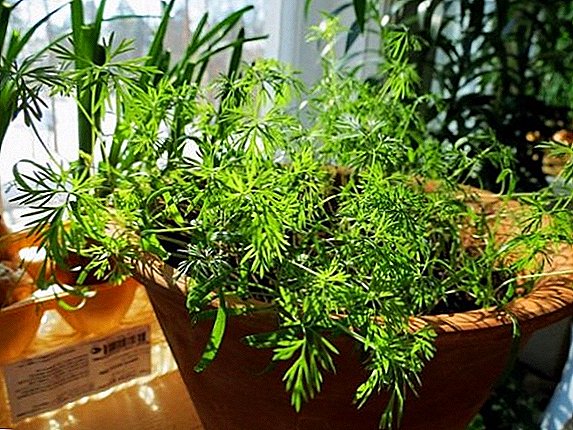
Summer time passes quickly, and I want to see fresh greens from my garden all year round. Juicy fragrant parsley decorates salads and soups of many gardeners and not only among them. But in the winter you don't want to buy greens grown in industrial greenhouses.
Today, each person has a freezer at home, which will help to preserve not only the parsley flavor, but also its benefit. Today we will learn how to prepare parsley for long-term winter storage, and how to freeze it.
Is it even possible to do this?
With a one-time freeze, the plant cells are practically not modified, and all vitamins, minerals and taste are preserved in their original form.
What is different from fresh frozen greens?
 Vitamins and minerals are not afraid of negative temperatures, and therefore are stored in frozen greens in full. The only exception is ascorbic acid, the content of which decreases in six months by only 10%. For example, 100 g of fresh parsley contain 150 mg of vitamin C, and 6 months after freezing will contain about 137 mg, which is 150% of the daily intake of this vitamin.
Vitamins and minerals are not afraid of negative temperatures, and therefore are stored in frozen greens in full. The only exception is ascorbic acid, the content of which decreases in six months by only 10%. For example, 100 g of fresh parsley contain 150 mg of vitamin C, and 6 months after freezing will contain about 137 mg, which is 150% of the daily intake of this vitamin.
Scientific studies have shown that homemade frozen greens contain much more microelements than fresh greens brought in winter from warm countries. In Spain, Turkey and Israel, vegetables and greens are grown on poor soils and processed with a large amount of chemicals, therefore, they have questionable benefits.
Calorie frozen parsley is almost the same as fresh. 100 g of greens from the freezer contains:
- 50 kcal;
- 4 g of proteins;
- 0.5 grams of fat;
- 7.7 g of carbohydrates.
Frozen parsley is rich in:
- Vitamins of group B, A, E, PP, K, retinol, ascorbic and nicotinic acids.
- Minerals:
- manganese;
- selenium;
- copper;
- phosphorus;
- calcium;
- potassium
- Essential oils.
- Antioxidants.
Benefit and harm
Greens from the freezer has a powerful effect on the body, namely:
 thanks to essential oils, it has antiseptic and anti-inflammatory properties;
thanks to essential oils, it has antiseptic and anti-inflammatory properties;- vitamin K strengthens blood vessels and prevents blood clots;
- improves eyesight due to the content of vitamin A and beta-carotene;
- regulates the endocrine system;
- enhances metabolic rate and promotes weight loss;
- vitamin B2 and folic acid support the nervous system is normal;
- removes excess salt from the body and prevents diseases of the joints;
- cleanses the intestines and promotes the development of healthy microflora;
- ascorbic acid strengthens the immune system and protects against colds;
- due to its high content of chlorophyll, it improves blood properties;
- regulates blood sugar levels;
- vitamin E prevents the clogging of the smallest capillaries;
- the amino acid histidine stimulates the restoration and healing of all body tissues;
- a high concentration of potassium strengthens the heart and helps stabilize the heartbeat;
- nicotinic acid improves digestion and redox processes;
- parsley contains phytoestrogens, which normalizes the menstrual cycle in women;
- prevents the development of prostatitis in men, improves potency.
The harm of frozen parsley:
- Parsley is very susceptible to environmental conditions.
If the greens are grown in areas with poor environmental conditions, or with the use of chemicals, the crop will have more harm than good. Heavy metal salts and other toxic substances cannot be completely removed from the beam.
- Spicy greens are contraindicated for people suffering from diseases of the liver and urinary tract.
- Excessive use of frozen parsley leads to an excess of essential oils in the body, leading to dizziness and nausea.
All stages: how to prepare greens for bookmarks in the freezer?
 Freezing is the only way to preserve all useful substances in parsley for a long time.. The best greenery is the one that was just brought from the garden. If it is not possible to grow spice on their own to freeze for the winter, you can buy it on the market or in a store.
Freezing is the only way to preserve all useful substances in parsley for a long time.. The best greenery is the one that was just brought from the garden. If it is not possible to grow spice on their own to freeze for the winter, you can buy it on the market or in a store.
When buying parsley, you must make sure that it is grown in the area where the buyer lives. The greens, long cut and brought from afar, have already lost all the vitamins. Also bundles should not have dried or damaged areas. The color of the fresh beam is bright and uniform.
To freeze the parsley you will need: a sharp knife, a cutting board, a dry soft towel, plastic bags or containers. Stages:
- the washing up. Greens should be thoroughly rinsed in cold running water, remove all dirt and dust. In no case can not wash the greens with hot water - after such processing, all the vitamins and minerals will be destroyed.
- Drying. This stage can not be skipped, otherwise the parsley in the freezer will be covered with an ice crust.
- It is necessary to let the water drain from the twigs, putting greens in a colander.
- When the main water is drained, you need to lay out the crop with a thin layer on a dry towel and leave for 2 hours.
- Cutting.
- It is necessary to chop the parsley, so it will be very convenient to use in the future.
- After cutting the greens once again spread a thin layer on a towel for 2 hours.
If you skip this step, the parsley in the freezer will stick together.
- Cooling. Spread the spice on a cutting board or tray and put in the freezer for 4-5 hours. Cooled, chopped greens will become crumbly.
- Frost. Chilled parsley should be packaged in small airtight containers or bags.
 The smaller the container, the less frozen green will come in contact with warm air each time the container is opened. The optimum temperature in the freezer is - 18 ° C.
The smaller the container, the less frozen green will come in contact with warm air each time the container is opened. The optimum temperature in the freezer is - 18 ° C.
Experienced housewives advise to pack the spice in portioned sachets and put in each of them as much as is usually used in one-time cooking.
So parsley will not be in contact with warm air, or with odors, and will last for a long time.
Frozen parsley will delight you with its taste and vitamins all year round.
How long can you keep in the fridge without thawing?
Passed through all the above steps. spice will remain for 9 months before the start of the new season of fresh greens.
Is spice re-laying cold allowed?
Re-freezing of greens is not allowed. The cell membranes, weakened by repeated freezing and thawing, burst, and the vitamins and minerals contained in the cells are destroyed. Parsley after re-freezing does not bear any benefit to the body.
Frozen parsley is a summer vitamin “hello” for winter soups and salads. Frozen fragrant spice to taste and benefit is not different from fresh bunches. The main thing is to follow all the stages of preparation and freezing of parsley, and the vitamin seasoning will continue until spring.


 thanks to essential oils, it has antiseptic and anti-inflammatory properties;
thanks to essential oils, it has antiseptic and anti-inflammatory properties; The smaller the container, the less frozen green will come in contact with warm air each time the container is opened. The optimum temperature in the freezer is - 18 ° C.
The smaller the container, the less frozen green will come in contact with warm air each time the container is opened. The optimum temperature in the freezer is - 18 ° C.









